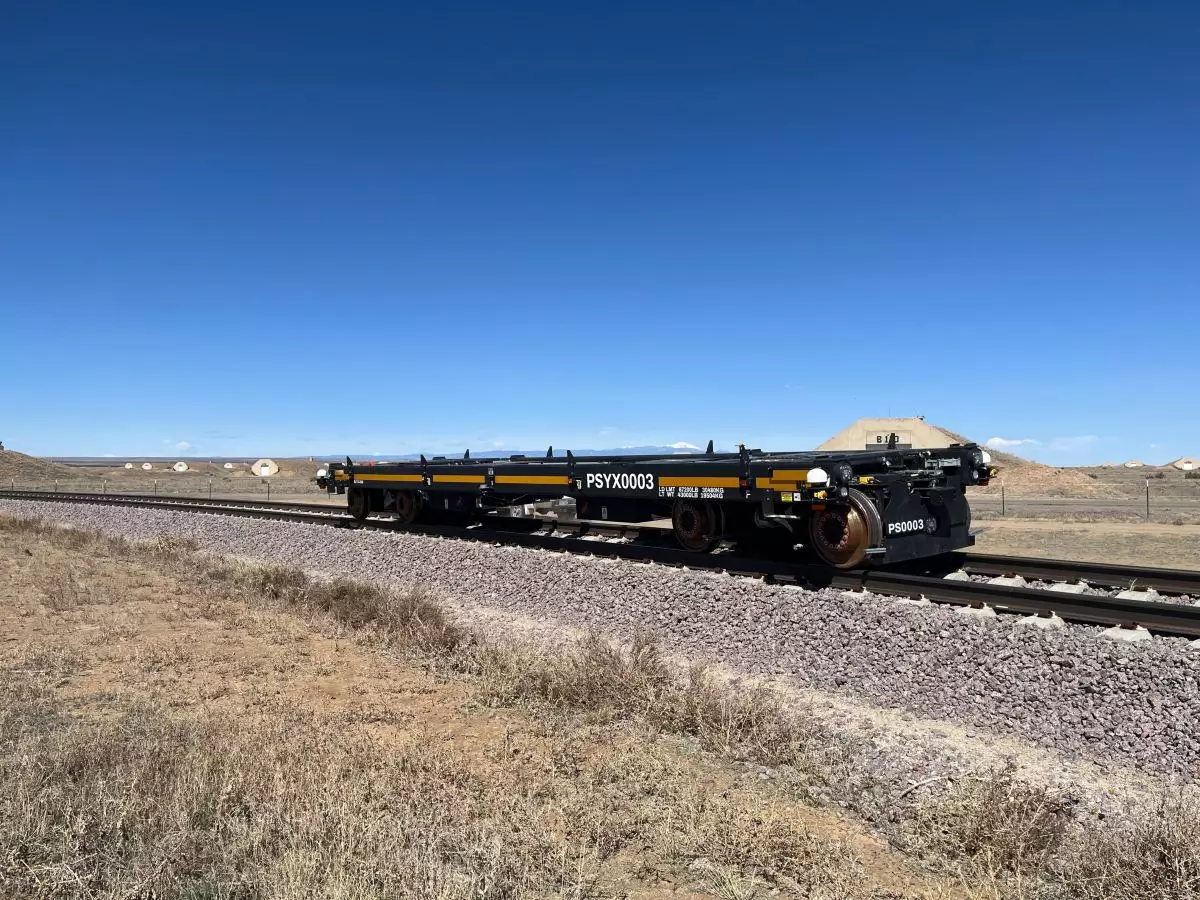In the sprawling logistics landscape of the United States, transportation heavily relies on trucks, which account for nearly two-thirds of the massive 20.2 billion tons of freight transported annually. This overreliance on trucking has spurred a pressing need for innovation in freight transport systems, a gap that Parallel Systems aims to fill with its groundbreaking autonomous electric rail technology. As the CEO Matt Soule describes, the traditional trucking model, while effective for short distances, carries inherent inefficiencies and environmental concerns that necessitate a critical re-evaluation of how goods are moved across the nation.
Parallel Systems: A Fresh Approach to Rail Freight
Parallel Systems is spearheading a revolutionary shift in the transport sector by developing battery-powered autonomous freight technology. This innovative approach leverages existing rail infrastructure, offering a modern solution to an age-old system. Unlike conventional trains that typically depend on bulky and expensive locomotives, Soule’s vision sees freight cars functioning independently, capable of connecting and detaching without human intervention. This is a significant leap towards enhancing operational efficiency while minimizing human error during the coupling process — a motion fraught with risks.
What sets Parallel’s offering apart is not merely the autonomy but also the smarter design approach. Freight cars equipped with advanced braking technology promise to operate at a higher efficiency than their traditional counterparts. The system aims to deliver quicker stops, making it safer for the transportation of goods, even as it faces the rigors of modern freight demands. By repositioning the economics of rail transport, Parallel Systems seeks to persuade businesses that rail is not only a viable option but often the preferred choice for shorter distances.
Pioneering Autonomous Freight Technology
In earnest pursuit of innovation, Parallel Systems has received the green light from the Federal Railroad Administration to begin piloting its technology in Georgia. This pivotal program grants the company the opportunity to experiment along a crucial 160-mile corridor extending from the Port of Savannah to various distribution points in the state. This pilot is not just a test of technology; it represents a potential turning point in an industry that has largely remained untouched by modern advancements.
The confidence exhibited by investors, illustrated through a successful $38 million Series B funding round led by Anthos Capital, also reflects a growing optimism about Parallel’s future. With this latest funding, the company has amassed over $100 million in total capital, earmarked for further development and commercialization efforts. The ambitious target of launching commercially by 2026 underscores the urgency of shifting freight operations toward a more sustainable and efficient model.
The Market Potential and Competitive Edge
Despite the massive potential, transitioning companies to a rail-based freight system is no small undertaking. However, as Soule points out, the recognition of an urgent need for radical change is resonating in the market. The demand for innovative solutions is palpable, especially in light of economic variables like impending tariffs, which could intensify pressure on businesses to streamline operations and cut costs. As companies anticipate these shifts, technologies that facilitate efficiency and sustainability will gain enviable market traction.
Insight from industry players like Sophie Bakalar of Collaborative Fund highlights the uniqueness of Parallel Systems’ approach. Even as the firm typically concentrates on consumer-focused ventures, the disruptive potential of this rail innovation is too significant to overlook. Bakalar articulates that the scale of the challenge and the expertise of Parallel’s team could yield successful outcomes, ultimately bringing transformative changes to freight dynamics.
A Founder with Vision and Versatility
Interestingly, Soule’s background doesn’t lie directly within the rail industry. His 20 years in aerospace, particularly at SpaceX, equip him with a unique perspective to tackle the transport sector’s challenges. His experience in developing cutting-edge technologies, including avionics, underscores his capacity for innovation. This cross-industry insight fuels the motivation to apply sophisticated technological advancements to the rail sector, a realm often deemed stagnant yet ripe for disruption.
By positioning himself and Parallel Systems as much more than a rail transportation entity, Soule seeks to embody a spirit of innovation that resonates throughout the organization. The company isn’t merely about transporting goods; it’s about fundamentally rethinking how freight can evolve in response to environmental demands and market pressures.
The transport sector stands on the brink of significant change, and with pioneers like Parallel Systems at the forefront, the future of freight is likely to embrace a more efficient, sustainable, and technologically advanced paradigm. The waves of transformation are not some far-off prospect; they are emerging now, promising a transformative impact on how goods flow across the nation.

